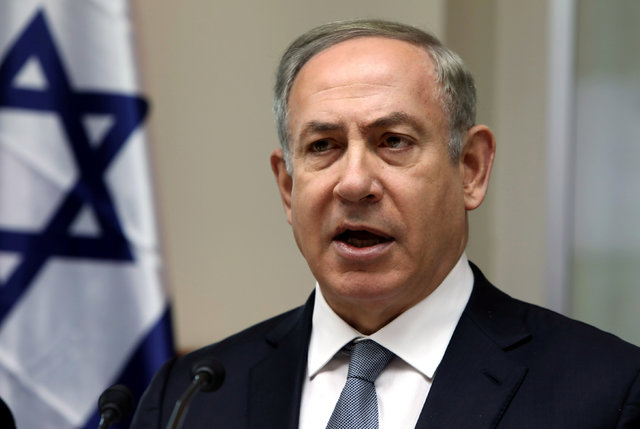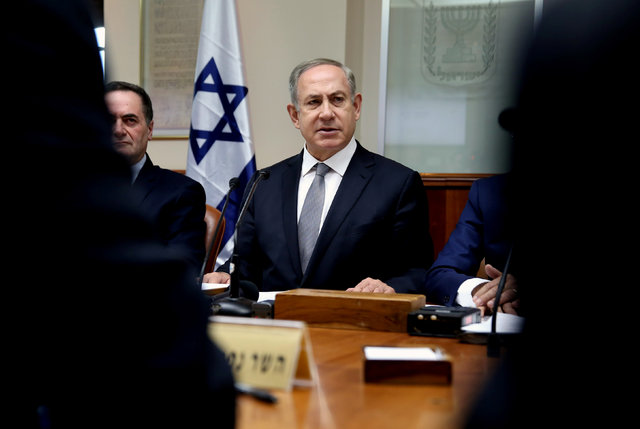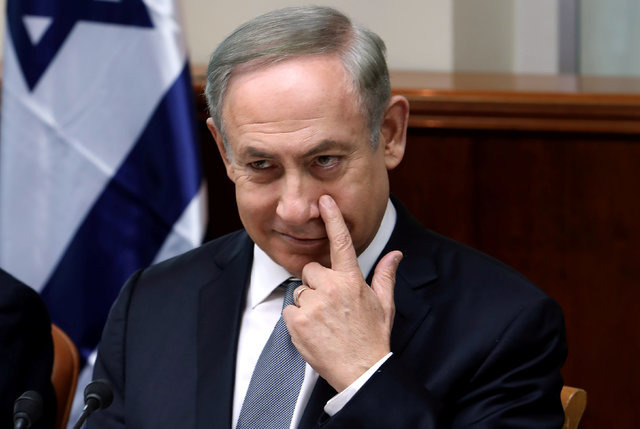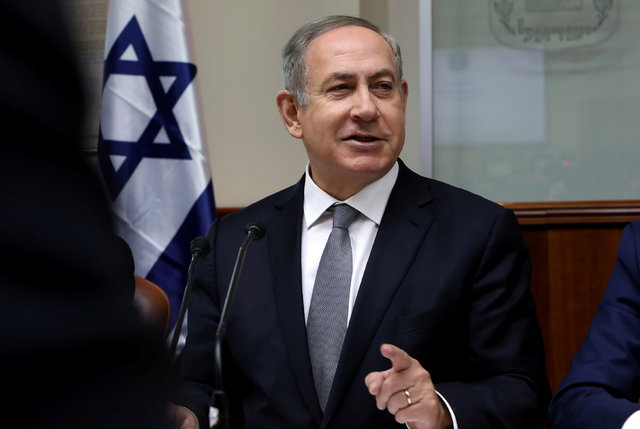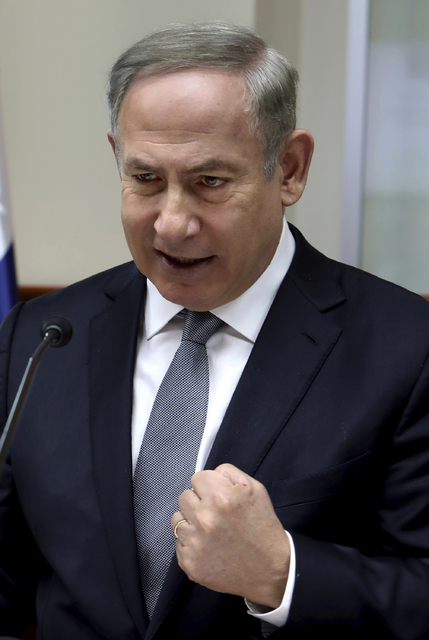Trump’s meeting with Netanyahu a chance to ‘reboot the relationship’
WASHINGTON — President Donald Trump, who campaigned for office promising to be “the most pro-Israeli president ever,” is scheduled to meet Wednesday with Israeli Prime Minister Benjamin Netanyahu.
“This president looks at Netanyahu as being sort of a natural partner,” said former Middle East envoy Dennis Ross, who is now with the Washington Institute for Near East Policy. If other summits were doomed to fail, Ross noted, this meeting is “doomed to succeed.”
Relations between President Barack Obama and Netanyahu were notoriously frosty. Obama punctuated the chill in those relations in December when his administration allowed the U.N. Security Council to pass a resolution that condemned the building of new Israeli settlements in Palestinian territory. Any fixation on settlements, said Islamic reformist Zudhi Jasser, “is what the Islamists want” because the controversy puts Israel, not Palestinians, on the defensive.
Wednesday’s meeting presents “an opportunity to reboot the relationship with Israel,” said Jasser, founder of the American Islamic Forum for Democracy.
Trump defended Jewish settlements as a candidate, but the president tweaked his position recently after Netanyahu announced plans to build 2,500 new housing units in the West Bank settlements. White House spokesman Sean Spicer issued a statement that warned that any expansion of settlements “may not be helpful” to the peace process.
Candidate Trump also said he would move the U.S. Embassy to Jerusalem “fairly quickly.” But in an interview with an Israeli newspaper, Israel Hayom, published last week, Trump equivocated. Asked when he would move the embassy, Trump answered, “The embassy is not an easy decision. It has obviously been out there for many, many years, and nobody has wanted to make that decision.”
Presidents George W. Bush and Bill Clinton abandoned similar campaign promises.
“He’s making it clear he’s going to listen to both sides,” said Jasser.
“Right now we don’t know what Donald Trump’s strategy is” on the embassy or settlements, said Abed Ayoub of the American-Arab Anti-Discrimination Committee. He expects more of the policies “we’ve seen in the past,” and that’s “letting Israel get away with whatever it pleases.”
A senior White House official who briefed reporters Tuesday said that Iran will be a critical piece of the discussion. Netanyahu has called the 2015 multinational nuclear pact supported by Obama “a historic mistake.” Trump has branded it “a disaster.”
Former National Security Adviser Michael Flynn put Iran officially “on notice” after Tehran engaged in a ballistic missile test launch. The White House response was to issue new sanctions on 25 Iranians. Both Netanyahu and Trump want to isolate Iran further.
Asked what he plans to do about Iran, Trump told Hayom, “I don’t talk about what I’m planning.”
(The Hayom interview took place on Thursday. That evening, Las Vegas Sands Corp. Chairman and CEO Sheldon Adelson, who owns Israel Hayom, and his wife, Miriam, had dinner with Trump at the White House. The Adelsons donated as much as $21 million to pro-Trump campaigns in 2016 and are staunch supporters of Netanyahu.)
Former diplomat Elliott Abrams, who served in the administrations of Bush and Ronald Reagan, sees the Trump White House engaging in an “inside-out” strategy: “Instead of using an Israeli-Palestinian deal to improve Israel’s relations with the Arab states, use Israel’s relations with the Arab states to advance an Israeli-Palestinian peace deal,” he explained in The Weekly Standard.
This new emphasis seems likely to replace Foggy Bottom’s decades-long quest for a “two-state solution” — that would create an independent Palestinian state alongside Israel — at a time many see the Palestinians as incapable or uninterested in negotiating a long-term solution.
“A two-state solution that doesn’t bring peace is not a goal that anybody wants to achieve,” the senior White House official said. “Peace is the goal. Whether it comes in the form of a two-state solution if that’s what the parties want or something else, if that’s what the parties want, we’re going to help them.”
Asked his definition of a two-state solution, the official answered, “If I ask five people what a two-state solution is, I get eight different answers.”
The Review-Journal is owned by the family of Las Vegas Sands Corp. Chairman and CEO Sheldon Adelson.
Contact Debra J. Saunders at dsaunders@reviewjournal.com or at 202-662-7391. Follow @DebraJSaunders on Twitter.




